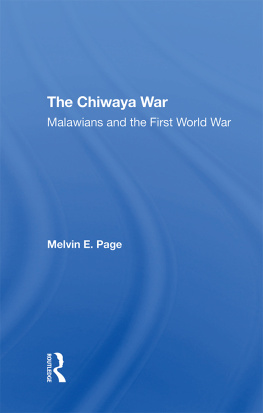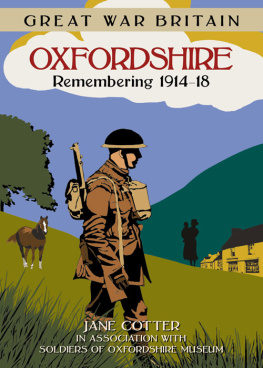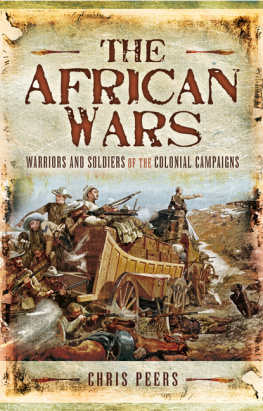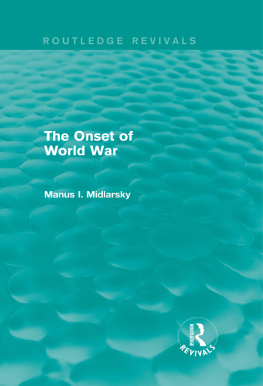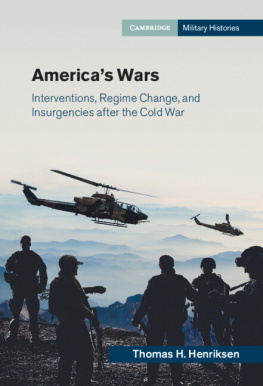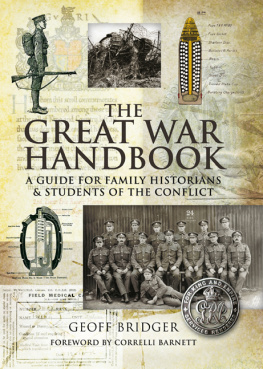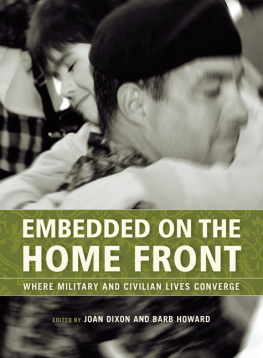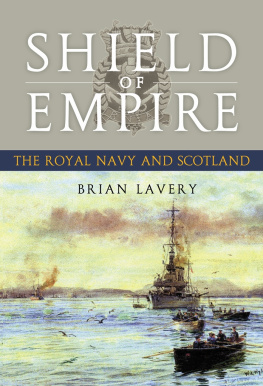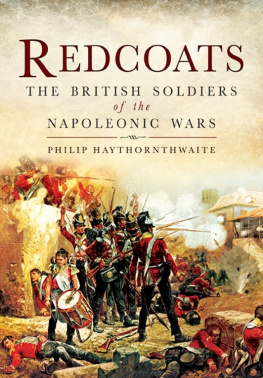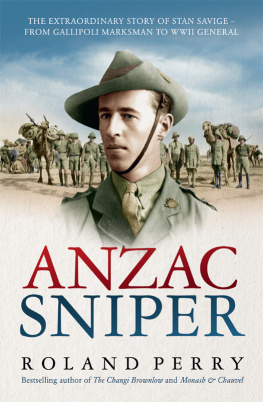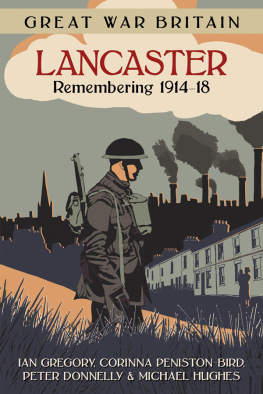The Chiwaya War
History and Warfare
Arther Ferrill, Series Editor
THE CHIWAYA WAR
Malawians and the First World War
Melvin E. Page
A ROCKY MOUNTAIN SAILOR IN TEDDY ROOSEVELT'S NAVY: The Letters of Petty Officer Charles Fowler from the Asiatic Station, 1905-1910
Rodney G. Tomlinson, editor
SOLDIERS, CITIZENS, AND THE SYMBOLS OF WAR: From Classical Greece to Republican Rome, 500-167 B.C. Antonio Santosuosso
THE ORIGINS OF WAR: From the Stone Age to Alexander the Great
Arther Ferrill
A HANDBOOK OF AMERICAN MILITARY HISTORY: From the Revolutionary War to the Present Jerry K. Sweeney, editor
THE MILITARY REVOLUTION DEBATE: Readings on the Military Transformation of Early Modern Europe Clifford J. Rogers, editor
SUN PIN: MILITARY METHODS Ralph D. Sawyer, translator
THE GENERAL'S GENERAL: The Life and Times of Arthur MacArthur Kenneth Ray Young
TO DIE GALLANTLY: The Battle of the Atlantic
Timothy J. Runyan and Jan M. Copes, editors
GOOD NIGHT OFFICIALLY: The Pacific War Letters of a Destroyer Sailor
William M. McBride
SUN-TZU: ART OF WAR
Ralph D. Sawyer, translator
FEEDING MARS: Logistics in Western Warfare from the Middle Ages to the Present John Lynn, editor
THE SEVEN MILITARY CLASSICS OF ANCIENT CHINA
Ralph D. Sawyer, translator
The Chiwaya War
Malawians and the First World War
Melvin E. Page
First published 2000 by Westview Press
Published 2019 by Routledge
52 Vanderbilt Avenue, New York, NY 10017
2 Park Square, Milton Park, Abingdon, Oxon OX14 4RN
Routledge is an imprint of the Taylor & Francis Group, an informa business
Copyright 2000 Taylor & Francis
All rights reserved. No part of this book may be reprinted or reproduced or utilised in any form or by any electronic, mechanical, or other means, now known or hereafter invented, including photocopying and recording, or in any information storage or retrieval system, without permission in writing from the publishers.
Notice:
Product or corporate names may be trademarks or registered trademarks, and are used only for identification and explanation without intent to infringe.
A CIP catalog record for this book is available from the Library of Congress.
ISBN 13: 978-0-367-29084-9 (hbk)
For Colleen, Neo, Jabulani, and Leslie whose hard work and determination were and inspiration
- CO Colonial Office
- FO Foreign Office
- IWM Imperial War Museum
- KAR King's African Rifles
- MAPARO Malawi Army Pay and Records Office
- MCP Malawi Congress Party
- MNA Malawi National Archives
- MNR Museum of the Northamptonshire Regiment
- NAZ National Archives of Zimbabwe
- NRP Northern Rhodesia Police
- PIM Providence Industrial Mission
- POHC Forrest C. Pogue Oral History Collection, Murray State University
- POW prisoners of war
- PRO Public Record Office
- RHL Rhodes House Library, Oxford University
- SML Society of Malawi Library
- UMCA Universities' Mission to Central Africa
- WO War Office
This book has had a longperhaps an abnormally longgestation period. The project, normally enough, grew out of an initial interest sparked by a graduate seminar paper I prepared almost thirty years ago. The late Professor Jim Hooker was responsible for inspiring that effort. Then, after I had passed over other possibilities, he also opened doors that led me to Malawi for the research which would be necessary for my doctoral dissertation.
Even at that point my academic attentions were turned elsewhere: my initial intent was to explore the historic formation of Yao ethnic identity in the Mulanje District of the country. But in the research, and political, environment of Malawi at that time, such a project seemed untenable. Searching out an alternative, I returned to that seminar paper I had written several years before. Since my interest seemed to focus on a specialized aspect of the military as an institution, the work seemed possible. And it was at that point that Professor Bridge Pachai, then chair of the History Department of the University of Malawi, stepped in to make the contacts necessary to promote the project. Without his institutional interventions and personal encouragement I do not believe this entire project would have been possible.
Though I was comfortable with the military and institutional focus which opened the doors for my research, from the start I searched out ways to explore the broader social consequences of World War One for Malawians. Still, looking at warand the role of colonial armiesin shaping the history of Malawi's peoples has sometimes led me, and others, to an occasionally skewed understanding of this study. While it is about an episode with clear military implications, it is not primarily a military history. Keeping that clearly in mind is something I owe to Professor Harold Marcus who, as dissertation supervisor, insisted I maintain the social history focus I had originally intended.
, The Hungry War," which transcended even the traumas of battle.
The majority of Malawians, however, remained on the homefront and found their lives engulfed in "A Time of Fire" described in , "A Shame to People's Souls."
Despite those efforts to shape the story around key social markers, my Michigan State University 1977 doctoral dissertationand some of my subsequent publications on this topichave owed too much to the institutional focus often found in a great deal of published military history. I also drew too frequently on the impersonal analyses of group responses to colonialism which I had read in graduate school. In the years since, I have come to question some of my approaches to telling this story. My concerns have been similar to those of Jan Vansina who, in considering much of the historiography of Africa, has pondered: "Where in all of this is the flesh and blood of the adventure that African history was and is? Where is the elation, the sense of struggle?" I owe him a particular debt of thanks for his confidence that I could capture the elation which he has exemplified.
Thus, this book represents not so much a rewriting of my PhD dissertation (although there is much of that, including considerable additional material and new evidence), but more a reorienting of my presentation. I have reassessed the role and place of the oral evidence I collected for the project, and have triedas I previously had notto recognize the importance of the historical mindfulness which these Malawian accounts represent. I have also reconsidered the importance of World War One in the formation of Malawian identity as well as how this shaping of the Malawian national consciousness has a place in world history, now considered in , "Fighting for the World."
In making these changes I have benefited from the insights and inspiration of numerous colleagues and students. I am especially grateful to Tony Woods for helping me refocus, again and again, on the Malawi of my study and to Ken Wolf who guided me through the minefield of intellectual history. At the same time Jim Matthews, a consummate public historian, continually encouraged me to keep in mind that this was, after all, an interpretation of World War One in Africa. My students, often unknowingly, have also been a major inspiration. First at Murray State University and then at East Tennessee State University, their questions about world history, especially, have raised in my mind the kind of issueslarge and smallwhich have made me reexamine evidence and rethink conclusions. But it has been the devotion to the historian's enterprise of four graduate students that has particularly energized me in finally bringing this work to fruition. Colleen Vasconsellos and Leslie Rollins at East Tennessee, and Neo Ramoupi and Jabulani Phelgo at the University of Natal, Durban, each demonstrated by extraordinary effort that it was possible to overcome both intellectual and personal obstacles to create the storiesintended to be truewe tell as historians. That is why this book is dedicated to them.


